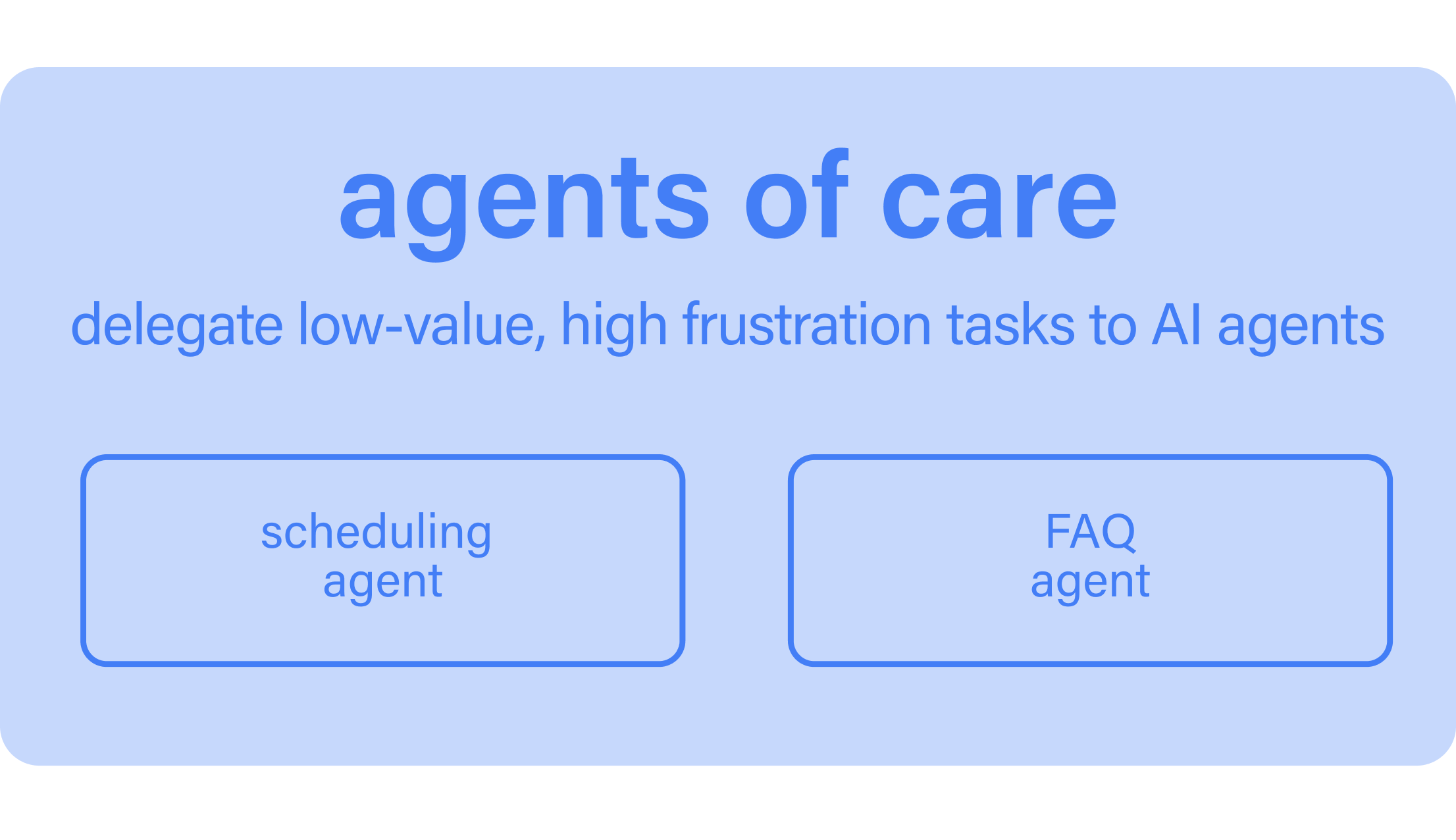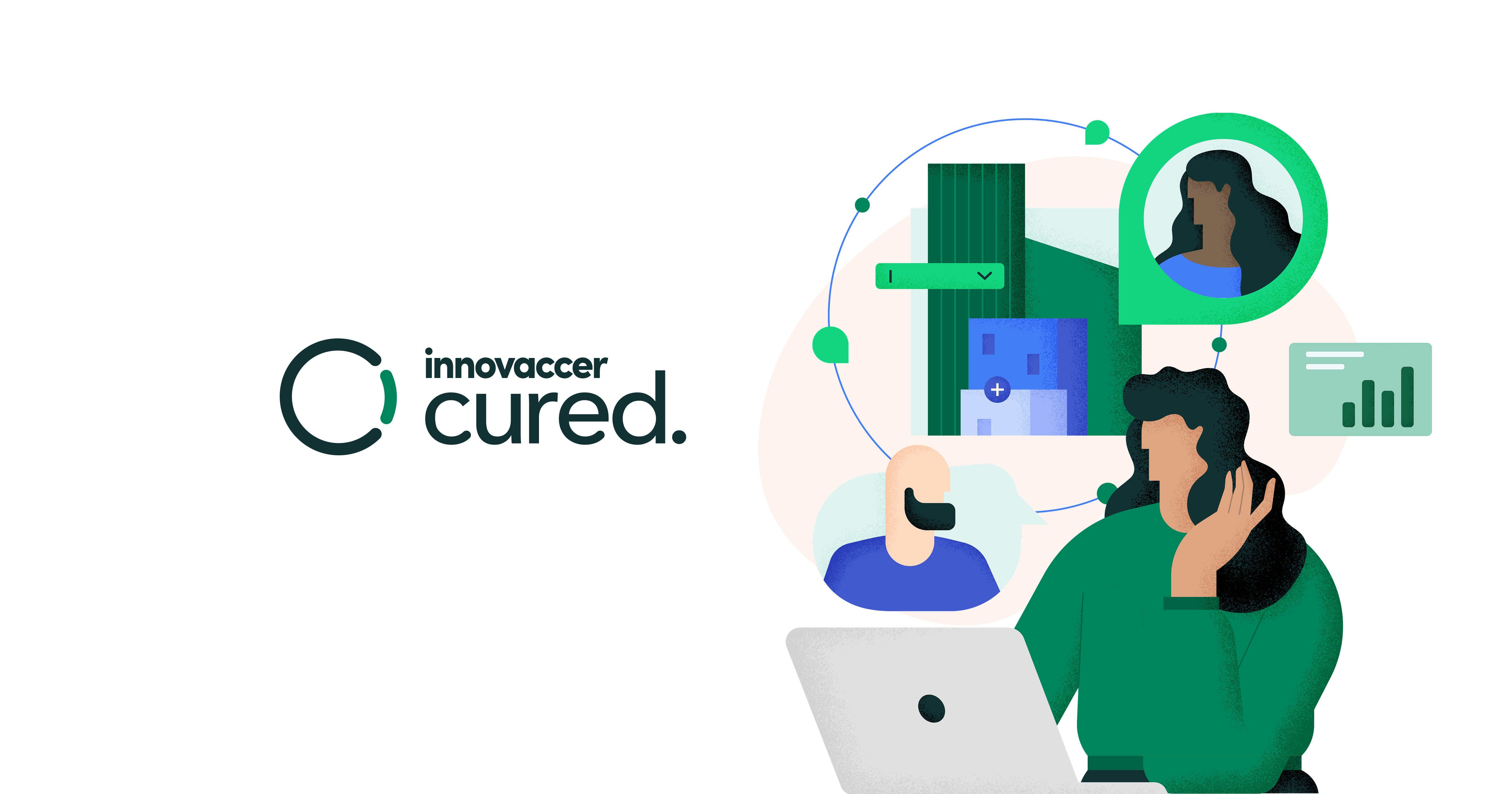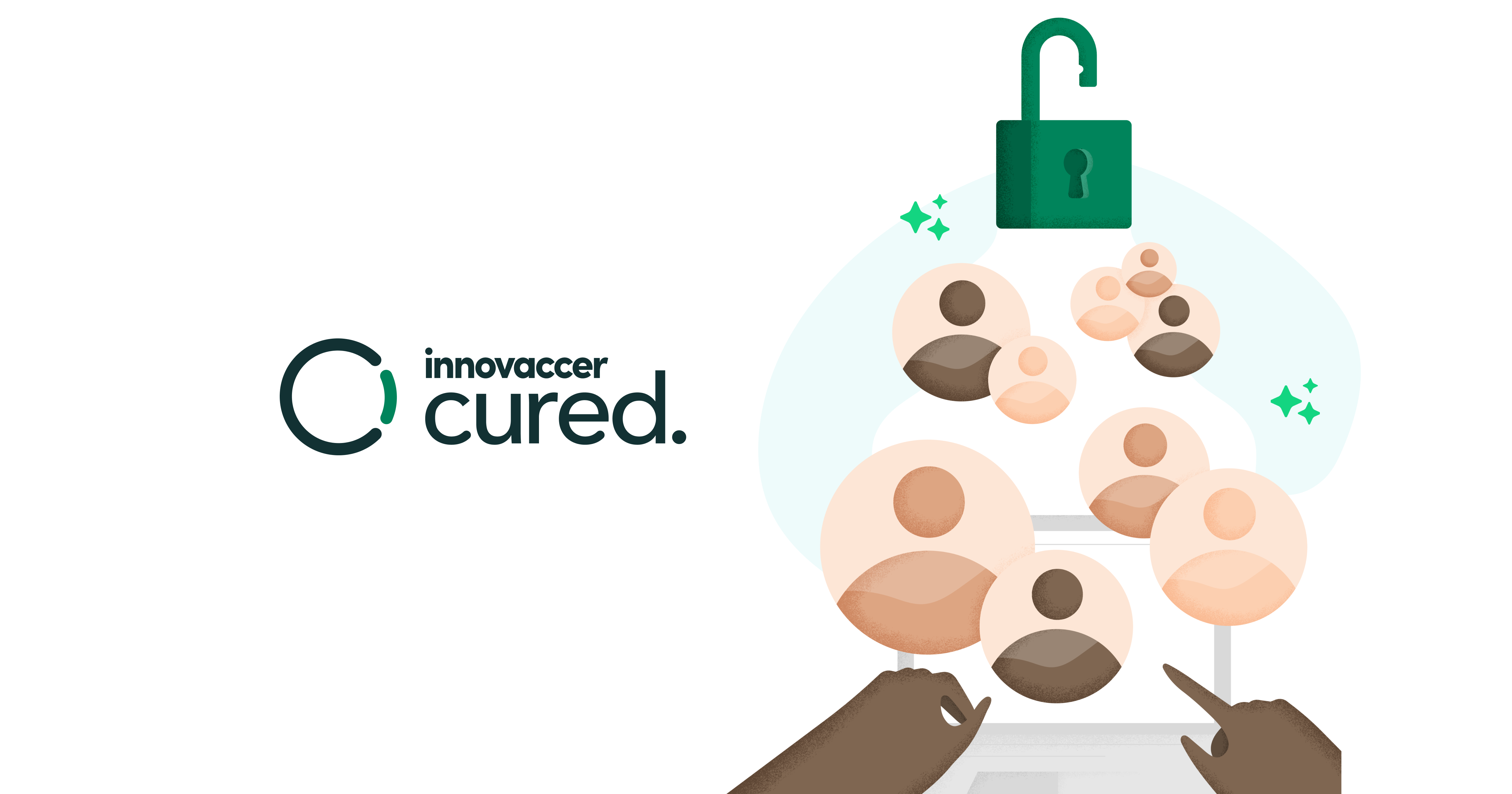AI agents: a guide to the future of intelligent support in health

Discover how AI agents streamline operations, reduce manual tasks, and personalize patient engagement using real-time healthcare data
Healthcare has become more complex than ever, with more data, systems, and pressure to do more with less. Amid this growing complexity, AI agents are emerging as one of the most powerful tools for healthcare organizations looking to streamline operations and elevate patient engagement. These intelligent systems work behind the scenes, using real-time data to make decisions, trigger actions, and continuously optimize performance. The result? More efficient teams, more responsive outreach, and more personalized experiences across the care journey.
what are AI agents?
AI agents are autonomous software tools that use artificial intelligence to complete tasks, solve problems, and make decisions, often without requiring direct human input. In healthcare, this could mean sending a follow-up message after a missed appointment, escalating a patient flagged as high-risk, or automatically adjusting campaign outreach based on response behavior.
Unlike traditional automation, AI agents are adaptive. They learn from each interaction, becoming smarter over time and improving how and when they act. That means fewer repetitive tasks for staff, more precise targeting, and better outcomes for patients.
how AI agents reduce operational burden
Manual workflows slow teams down. From appointment reminders to post-discharge instructions, healthcare staff often spend time on repetitive tasks that AI agents can handle instantly. These agents can process data across multiple systems to:
- Identify patients due for preventive care
- Trigger reminder messages with personalized details
- Escalate follow-up when a patient hasn’t scheduled
Because they operate continuously and learn from performance, AI agents free up staff to focus on higher-value interactions that require human empathy and expertise.

driving real-time engagement
Patient needs don’t follow a 9-to-5 schedule—and neither should your outreach. AI agents respond as soon as a signal is detected: a missed appointment, a newly completed lab result, a drop in engagement. They adjust the message, channel, and timing in real time to match the patient’s current behavior and preferences.
This level of responsiveness ensures every touchpoint feels timely and relevant. If a patient doesn’t respond to an email, the agent might follow up with a text. If they click a link but don’t schedule, the agent can send a personalized nudge with one-click booking. These adaptive decisions improve conversion and reduce drop-off without manual intervention.
supporting smarter, more connected care
AI agents don’t replace human care but make it easier to deliver. By integrating into existing workflows, these agents help connect fragmented systems and data to ensure every interaction is informed, consistent, and valuable. They can surface important information for care coordinators, alert providers to potential gaps, and ensure patients don’t fall through the cracks.
For healthcare organizations, this means better care continuity, improved outcomes, and less administrative overhead. For patients, it means a smoother, more connected journey—without needing to navigate the system on their own.
why the right data matters
AI agents are only as effective as the data they’re built on. Disconnected, outdated, or incomplete data can lead to missed opportunities or irrelevant outreach. To act intelligently, AI agents need access to real-time, comprehensive patient data from across the organization. This is where a strong data foundation and a unified view of the patient become essential. With the right inputs, AI agents can personalize communication, trigger next steps, and continuously optimize engagement strategies.
the future of support is intelligent
AI agents represent a shift in how healthcare organizations engage, operate, and scale. By combining adaptive technology with smart data infrastructure, teams can move faster, reduce manual effort, and improve outcomes without sacrificing personalization or compassion. Healthcare is complex, but support doesn’t have to be. With the right AI agents and the data foundation to power them, organizations can deliver experiences that are not only more efficient but truly patient-first.
Ready to see how AI agents can transform your workflows and engagement strategies?



